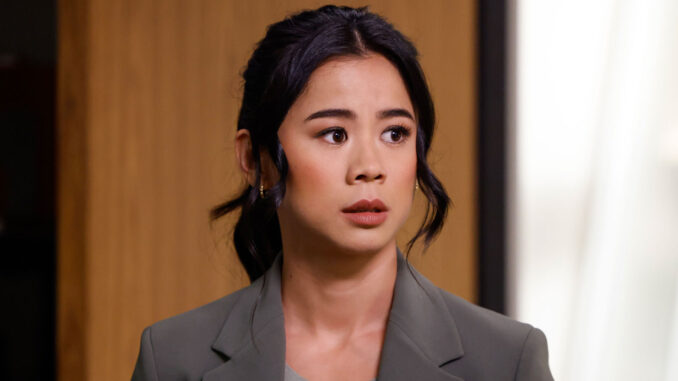
The law, in its popular imagination, often stands as a monolithic edifice – cold, impartial, carved from stone tablets and ancient statutes. It speaks a language of precedents, verdicts, and punitive measures, a necessary framework for societal order, yet one seemingly detached from the messy, emotional realities of human experience. However, every now and then, a character emerges from the realm of fiction who peels back this austere facade, revealing the beating heart beneath the gavel. Leah Lewis’s portrayal of Sarah Franklin in Nancy Drew is one such illuminating instance, offering a profound, often poignant, glimpse into the human side of the law.
Sarah Franklin is not the high-flying corporate attorney or the ruthless prosecutor often glorified on screen. She is a public defender, a warrior in the trenches of the legal system, advocating for those often forgotten, misunderstood, or simply without the means to navigate the labyrinthine corridors of justice. This choice of profession immediately anchors her character to the “human side” of law. Public defenders encounter individuals at their most vulnerable: accused, frightened, and often entangled in circumstances far more complex than a simple police report might suggest. Their clients are not just case numbers; they are people grappling with poverty, addiction, systemic bias, and a host of societal failures that often precede their legal troubles.
Leah Lewis imbues Sarah with a nuanced blend of youthful idealism and a weary pragmatism born of direct experience. Her performance is subtle yet powerful, her expressive eyes often conveying more than dialogue ever could. We see the weight of her clients’ plights reflected in her gaze – a flicker of frustration at an unyielding system, a surge of empathy for a desperate plea, and a steely resolve to fight for fairness, even when the odds are stacked against her. Lewis doesn’t just recite legal jargon; she translates it into human stakes, making the abstract concept of “due process” feel like a lifeline extended to a drowning soul.
Consider a typical scene: Sarah is meeting with a client, perhaps a teenager accused of petty theft, caught in a cycle of desperation. Lewis doesn’t play Sarah as an emotionless professional. Instead, she portrays a lawyer who listens intently, not just to the facts, but to the unspoken narrative behind them. Her body language is open, her voice empathetic yet firm, as she navigates the tightrope between legal strategy and genuine concern. She might challenge a client’s self-destructive tendencies or offer a glimmer of hope for rehabilitation, reminding them that their value extends beyond their current predicament. This isn’t just law; it’s a form of social work, psychology, and moral advocacy, all wrapped into one.
Through Sarah Franklin, we understand that the “human side of the law” is about more than just compassion; it’s about context. It’s about recognizing that every defendant has a story, every crime has a prelude, and every legal outcome reverberates far beyond the courtroom walls, impacting families, communities, and future trajectories. Sarah grapples with the systemic inequalities that push people into the criminal justice system, highlighting how economic disadvantage, racial bias, or mental health issues often dictate who ends up in handcuffs. Leah Lewis’s portrayal allows us to witness the often-heroic effort required to pry open these complex narratives, to present a holistic picture of a person rather than a mere catalog of their alleged transgressions.
Moreover, the human side of the law also extends to the people who work within it. Sarah isn’t invincible. We see her moments of doubt, her frustration with judicial indifference, and the emotional toll of fighting seemingly unwinnable battles. This vulnerability makes her character profoundly relatable and underscores the immense personal cost of upholding justice for others. Yet, it is precisely this human fallibility, coupled with an unwavering commitment, that makes her an inspiring figure. She is a testament to the idea that even within a rigid system, individuals can wield empathy as a powerful tool for change.
In essence, Leah Lewis’s Sarah Franklin is a vivid illustration of the truth that law, at its best, is not merely a set of rules, but a constant negotiation of human dignity, responsibility, and the perennial quest for justice. Her character reminds us that behind every statute and every verdict lies a human being – whether the accused, the victim, or the advocate – whose life is irrevocably shaped by its machinery. By lending heart and soul to the public defender, Lewis invites us to look beyond the cold letter of the law and truly see the humanity it is designed to serve, protect, and, sometimes, redeem.
